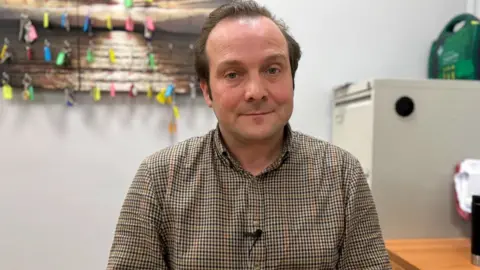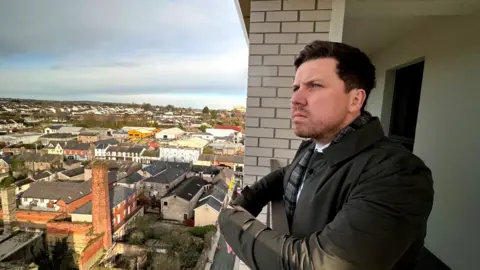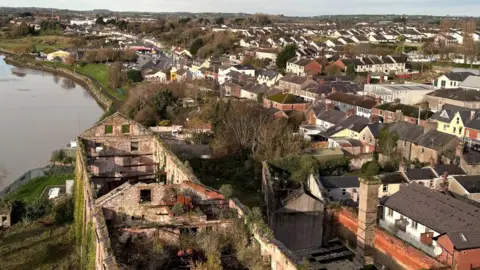On average, it took almost half a million votes to elect each Green MP, compared to just 24,000 for each elected Labour representative.
by Bill Curtis
2024-11-26
in Politics

PA
Newly elected Labour MPs are mounting pressure on Keir Starmer to introduce proportional representation by the next general election to restore the public’s trust in politics.
More than half of the over-100 MPs who have joined the newly established all-party parliamentary group (APPG) on fair elections represent Labour, including 43 members from the 2024 intake.
The APPG, along with the campaign group Free Vote, is calling on the government to establish a “national commission for electoral reform”, allowing Brits and experts alike to put forward a “fair, democratic alternative” to the first past the post system.
It comes after their latest report indicates that 64 per cent of the public wants the government to address the flaws in the current electoral system before the next general election.
On average, it took 24,000 votes to elect each Labour MP, 49,000 per Lib Dem, 56,000 for every Conservative MP, 486,000 votes per Green, and 824,000 for every Reform MP.
The report also calls for tighter regulations on dark money in politics and demands more transparency from social media companies over how they handle “legal but harmful” content, including disinformation.
Putting forward their aim for reform, the group said: “A broad political consensus has emerged: parties with a combined 500 MPs (77 per cent), including Labour, are in agreement that FPTP is a flawed system that is causing distrust in politics.
“New polling has found almost two thirds (64 per cent) of the public believe the government should address these flaws before the next general election. There is now record and majority public support for changing to a proportional voting system, particularly among those who trust politics.”
Labour MP and chair of the APPG Alex Sobel said: “The popular vote a party needs to win a majority has been steadily falling for decades, and now first past the post has delivered a landslide on just a third of the vote.
“Are we really comfortable with a situation where a party – even an extreme party – can win a thumping majority with, say, just three out of 10 votes? Because if things continue, that’s where we’re heading.”

Trump’s win has sent shockwaves through the heart of liberal democracy, and the voting systems designed to protect it are now a burning issue. In this regard, advocates of proportional representation (PR) argue that first past the post (FPTP) could put Reform UK into power on a minority vote.
In Part 1 of my exploration of PR and far-right extremism, I agreed we should push for PR as a fairer, more representative voting system than FPTP. But I also questioned PR’s resilience against extremism. The idea that PR restrains far-right parties via consensus and negotiation, understates their ability to camouflage themselves, pull the centre to the right, and acquire majorities that liberate them from centrist constraints. Furthermore, by legitimising the narratives of the far right, PR has a role in shaping its cultural and political environment.
Solutions for democracy?
The solution is clearly not to retain FPTP, but nor is it to persist with PR as currently conceived.
There are two issues here, one concerns accuracy. If PR lacks resilience, then we need a more realistic account.
The other is practical. At a historical moment when the far right is tightening its grip across Europe, the US and the UK, it becomes harder to persuade sceptics to support PR. People are dubious about endorsing a voting system that deals us a considerably larger set of far-right MPs but lacks resilience against the spread of far-right influence.
Minimalism vs wishful thinking
According to the minimalist view, the sum of PR’s utility is just ‘proportional fairness’. On this view, it doesn’t matter what ideological positions our elected politicians take providing they proportionally represent the electorate. As one proponent put it, “if we’re going to have fascism, let’s at least have it with a majority vote”.
The problem here is that if we want to preserve centre-ground, liberal democracy, then PR must be robust. If the link between PR and far-right extremism were visibly even tighter and invariably led to fascist takeovers, we would simply reject it, however fair it was as a voting system.
But nor should we ascribe to PR magic properties it doesn’t possess. To present PR persuasively, we need realism on precisely how PR can contribute to ‘the good society’.
The pendulum
The minimalist view is partly correct. PR is best conceived, not as an inherently progressive force that gravitationally tends towards centre-ground coalitions, but as an abstract system producing party arrangements that settle or move anywhere on the political spectrum. Thus construed, PR covers outcomes ranging from Scotland’s centre-ground parties to Israel’s extreme-right coalitions. It retains its democratic advantage over FPTP by representing voter preferences more accurately, but beyond that it is neutral.
But if PR is a neutral system able to swing in any ideological direction, then, to promote it, we need to show how it can be anchored to the progressive centre ground by reforms outside of itself. It is important that these changes are external and not an attribute of PR itself. The determination of centrist coalitions to exclude the extremes is a worthy principle and sometimes works. But, as the recent collapse of Chancellor Scholz’s traffic light coalition reminds us, it’s not an outcome we can rely on PR to engineer by virtue of its own internal structures.
Why does UK PR need external guardrails?
Our ‘progressive outlook’
The Labour government is vulnerable under FPTP because its voter support base is shallow. But PR advocates tend to believe that UK centre-ground parties will be more secure under PR because we are protected by a predominantly progressive outlook. European rightward shifts won’t happen here because our progressive majority will form the pillars of a healthy, democratic PR voting system, glued together by centrist values.
Is this exceptionalism warranted?
A European-style shift here isn’t inevitable. We might be a ‘lucky exception’. But, equally, we might not. Two countries not mentioned in Part 1 are Finland and New Zealand, whose enviable centrist coalitions had been exemplars of our PR ideal. Yet even they were shoved hard right in their latest national elections, as was the European parliament in post-election 2024 developments.
Here, as the Fairness Foundation warns, failure to take decisive action on reducing north/south housing and income inequalities risks unprecedented far-right gains. However, Labour’s fiscal constraints make successful action on this extremely difficult. Also, success isn’t likely to be sufficient to remove the risk anyway.
One key reason is that far-right propaganda on matters such as immigration, climate change, and ethnic groups, continues to course through the UK via unregulated press, social media, grass roots far-right organisations, and political parties themselves.
Also, the confidence and efficacy of far-right parties has just been vastly increased by Donald Trump’s win. And we are being pursued. The players who delivered Brexit and the rash of summer riots have no intention of exempting the UK from future interference. The toxic flow of misinformation here won’t simply dry up under PR but will remain a key driver behind the promotion of far-right thinking.
So, what external anchors do we need for PR? The ideas suggested here aren’t comprehensive or new, but are preconditions of effective PR.
Veracity guardrails
Access to the truth is, I’d argue, a basic human right and also crucial for PR, because it is pointless and dangerous to demand fair voting if it isn’t underpinned by reasonably accurate information. We don’t need to get entangled here in spats over ‘what constitutes truth’ or inevitable imperfections in the standards being proposed. The point is that we know a vast amount of content delivered to us is false – we rail about it constantly – and that we must do better.
There’s an assumption that knowledge is there for the taking and that individuals are free, and dutybound, to avail themselves of it. Poor education and biased press have always made this notion questionable. But, since the arrival of the internet, and its capacity to overwhelm us with blizzards of falsity, the idea has become utterly nonsensical.
We’ve just witnessed the power of disinformation behind Trump’s win. ‘Fact corrosion’ is now so deep that MAGA supporters occupy a separate cognitive universe where sources of democracy and good governance are reversed. The bad becomes good and vice versa.
To combat the malign influence of disinformation in the UK we need to reclaim our basic right of access to the truth. This is an essential good and valuable in any voting system, but vital for PR when the progressive outlook on which effective PR depends is under attack and increasingly marginalised by world events.
Watchdog teeth
One way veracity could be enhanced is by amending the national curriculum. UK education is currently poor on basic politics and the critical thinking children need in order effectively to scrutinise the information they receive. Children currently aren’t primed to be politically engaged or to critically evaluate the political diet they are fed as adults.
To complement these changes, the Online Safety Act needs improved co-ordination. Its tendency to treat items of harmful information separately is, as Paul Mason notes, like dealing with “an air raid bomb by bomb rather than shooting down the ingressing aircraft”.
Online Safety Act reforms also need a bigger focus on the damage online content does to adults. Tightening regulations on misinformation and increasing penalty charges beyond 10% of annual turnover is also important, as is making conformity to the Act mandatory, including more platforms such as Telegram, and building in rapid responses to crises like the riots.
Disinformation could also be countered by framing Ofcom around a new Leveson inquiry, and giving it greater powers to scrutinise mainstream media, to enforce press compliance with its regulations, and to issue swift, meaningful penalties for the dissemination of fake news.
These are a few ways Labour could hone current systems into more formidable tools for upholding informational accuracy, ones that help voters make clear-eyed judgements.
Bold counter-narratives
Labour also needs to move beyond narrow responses such as jail for rioters followed by silence, which simply leaves a vacuum for the far right to fill.
Instead, it needs actively to promote an explicit, bold, public counter-narrative to the past 14 years, a clearly articulated commitment to a compassionate, inclusive society that will purposefully become the dominant voice, building receptivity and tolerance across the UK’s diverse cultural, religious, ethnic and gender groups.
To strengthen this counter-vision, Labour also needs to support and build more cross-community resilience groups and projects which monitor far-right activity.
Without these actions, PR risks being unmoored by the growth and influence of parties dancing to a different far-right tune.
Sustainable coalitions
Coalitions, though a cornerstone of PR, are fragile, ad hoc, and liable to implode without the democratic consent of the voters who chose them. On 5 November, the foul incubus of Trumpism jumped out of our screens onto our living room carpets as a living, breathing reality, now squatting over the planet.
The ‘Trump incentive’ might be the trigger that focusses minds on the need for genuine, sustained, co-operative coalition building. But that isn’t enough. Coalitions are littered with well-documented pros AND cons that warn against just ‘hoping for the best’. So, potential progressive coalition parties should absorb the extensive research on coalition building. Distributive leadership models, learning and communications culture, and formalisation of mandates and shared priorities, are essential but, once again, are external building blocks which don’t flow from PR itself.
The courage to say ‘no’
We should question the wisdom of handing an electorate, angered and alienated by years of chronically poor living standards, and steeped in press and social media disinformation, a voting system that includes parties driven by falsehoods and the denial of human rights.
For healthy, functioning PR, we need red lines for parties whose aim is to destroy the very democracy that put them there. These lines should also reflect scientific knowledge, e.g. on climate change and medicine, and basic rights such as equality, respect, and freedom from harm.
Difficulties establishing exactly where these lines should be drawn don’t mean they shouldn’t be drawn at all. We need the voice of parties that have immigration concerns, for example, but not when these concerns are driven by xenophobia and racial hatred.
PR can work only if we have the courage to say no, in principle, to the unfettered expansion of far-right ideology. A timely metaphor is the social media platform X which, once detached from regulation, went from being a useful, global community for the exchange of ideas to a cesspit of falsity, propaganda and hatred.
Starting over
Voting systems without red lines have the same vulnerabilities. European governments are increasingly hamstrung by far-right influence and the UK is becoming an outlier. This is a lonely position, but also a pioneering opportunity to start afresh with a more realistic, sustainable conception of PR .
The reforms suggested will be clunky and imperfect, but also cumulative, and we absolutely need them if we are to make informed, democracy-preserving voting decisions.
PR will only work for us if we are honest about its limits, and if we anchor it effectively to the centre by access to adequate knowledge, control of toxic misinformation, an inclusive political vision, and moral limits. Without these external guardrails, PR becomes ‘anything goes democracy’ which is ultimately no democracy at all but, like Trumpism, just a child with a handgun.
Claire Jones writes and edits for West England Bylines and is co-ordinator for the Oxfordshire branch of the progressive campaign group, Compass







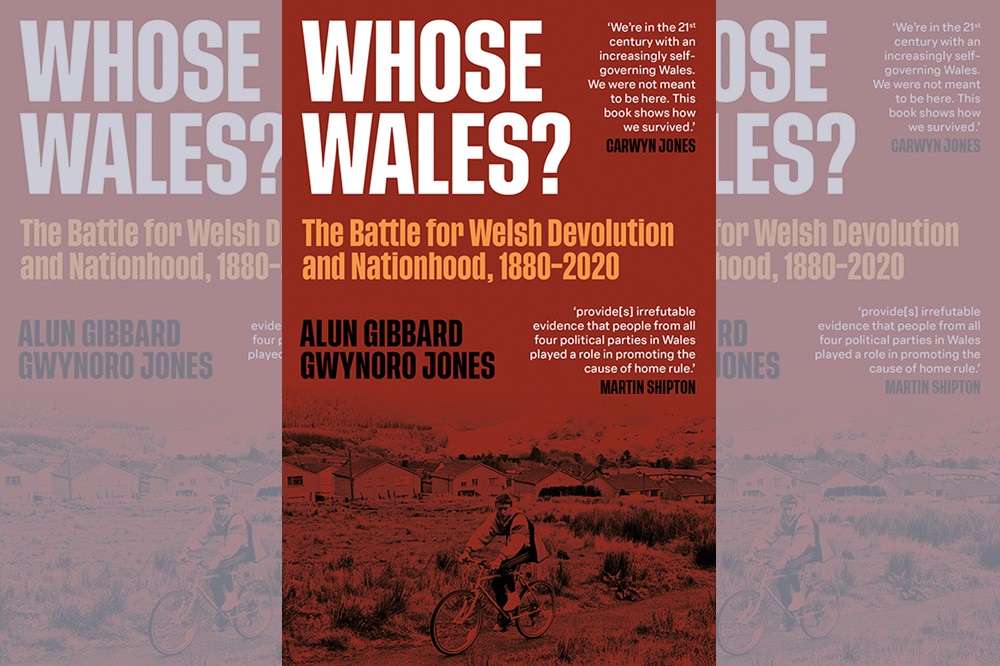

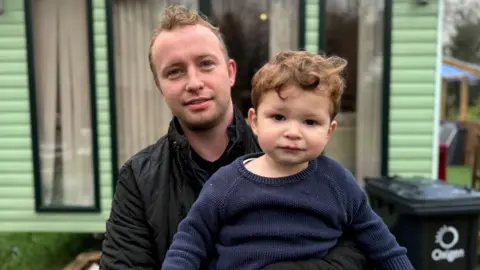 BBC
BBC

